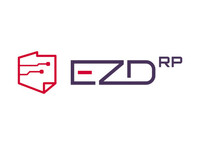Czajka, A
The paper presents an iris ageing analysis based on comparison results obtained for three different iris matchers (two of them have not been used earlier in works devoted to iris template ageing). For the purpose of this research we collected an iris ageing database of samples captured even eight years apart. To our best knowledge,this is the only database worldwide of iris images collected with such a large time distance between capture sessions. We evaluated the influence of the intra- vs. inter-session accuracy of the iris recognition, as well as the accuracy between the short term (up to two years) vs. long term comparisons (from 5 to 9 years). The average genuine scores revealed statistically significant differences with respect to the time distance between examined samples (depending on the coding method, we obtained from 3% to 14% of degradation of the average genuine scores). As the highest degradation of matching scores was observed for the most accurate matcher, this may suggest that the iris pattern ages to some extent. This work answers the call for iris ageing-related experiments, presently not numerous due to serious difficulties with collection of sufficiently large databases suitable for ageing research, and limited access to adequate number of iris matchers.












